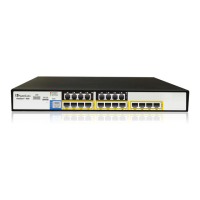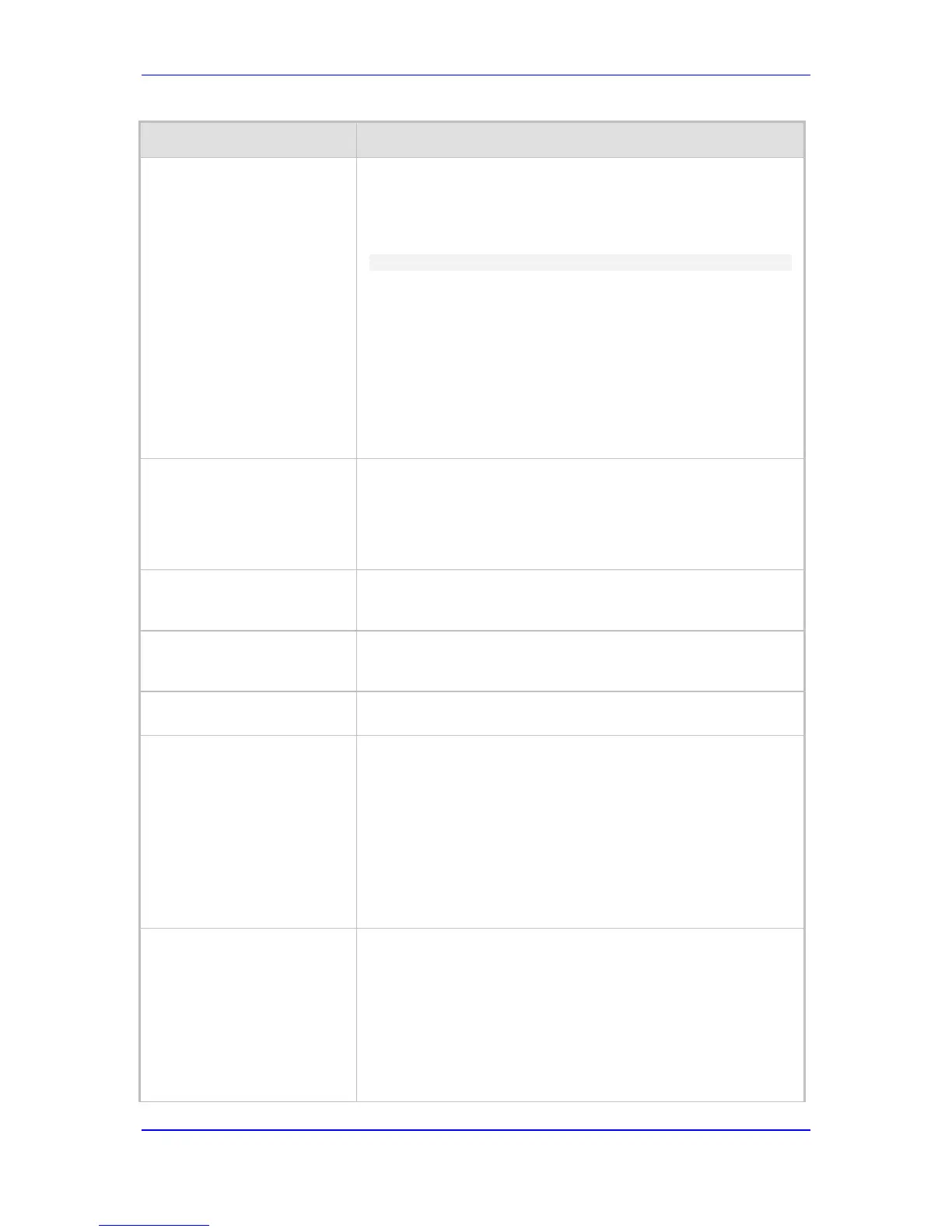[1] Enable
When enabled, the device includes in the SDP message the RTP
payload type "RED" and the payload type configured by the
parameter RFC2198PayloadType.
a=rtpmap:<PT> RED/8000
Where <PT> is the payload type as defined by
RFC2198PayloadType. The device sends the INVITE message
with "a=rtpmap:<PT> RED/8000" and responds with a 18x/200 OK
and "a=rtpmap:<PT> RED/8000" in the SDP.
Notes:
For this feature to be functional, you must also set the
parameter RTPRedundancyDepth to 1 (i.e., enabled).
Currently, the negotiation of “RED” payload type is not
supported and therefore, it should be configured to the same
PT value for both parties.
Web: RFC 2198 Payload Type
EMS: Redundancy Payload
Type
CLI: RTP-redundancy-payload-
type
[RFC2198PayloadType]
Defines the RTP redundancy packet payload type according to
RFC 2198.
The range is 96 to 127. The default is 104.
Note: This parameter is applicable only if the parameter
RTPRedundancyDepth is set to 1.
Web: Packing Factor
EMS: Packetization Factor
[RTPPackingFactor]
N/A. Controlled internally by the device according to the selected
coder.
Web/EMS: Basic RTP Packet
Interval
[BasicRTPPacketInterval]
N/A. Controlled internally by the device according to the selected
coder.
Web: RTP Directional Control
[RTPDirectionControl]
N/A. Controlled internally by the device according to the selected
coder.
Web/EMS: RFC 2833 TX
Payload Type
CLI: telephony-events-payload-
type-tx
[RFC2833TxPayloadType]
Defines the Tx RFC 2833 DTMF relay dynamic payload type.
The valid range is 96 to 99, and 106 to 127. The default is 96. The
100, 102 to 105 range is allocated for proprietary usage.
Notes:
Certain vendors (e.g., Cisco) use payload type 101 for RFC
2833.
When RFC 2833 payload type negotiation is used (i.e., the
parameter TxDTMFOption is set to 4), this payload type is used
for the received DTMF packets. If negotiation isn't used, this
payload type is used for receive and for transmit.
Web/EMS: RFC 2833 RX
Payload Type
CLI: telephony-events-payload-
type-rx
[RFC2833RxPayloadType]
Defines the Rx RFC 2833 DTMF relay dynamic payload type.
The valid range is 96 to 99, and 106 to 127. The default is 96. The
100, 102 to 105 range is allocated for proprietary usage.
Notes:
Certain vendors (e.g., Cisco) use payload type 101 for RFC
2833.
When RFC 2833 payload type negotiation is used (i.e., the
parameter TxDTMFOption is set to 4), this payload type is used

